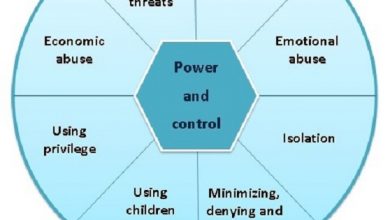Most in-demand skills for the future with12 skills including Soft skills and Hard skills
Skills for the future
The job market is always updating itself and being prepared for these changes is essential to stand out in increasingly competitive scenarios. In this sense, it is important to understand how the Fourth Industrial Revolution, guided especially by technological development, rapidly changes the way people live and, consequently, the way they work. In this article we will present you the Most in-demand skills for the future.
However, those who believe that the skills most sought after in the professionals of the future are based only on mastering technological systems are mistaken. On the contrary, the focus of skills will be firmed in deeply human competences and almost impossible to automate, such as collaboration, creativity, empathy, persuasion, among others, fundamental for the migration of manual activities and for intellectual tasks that will dominate in the coming decades.
What are professional skills?
Professional skills are the abilities and knowledge that are needed to perform a specific task or function in a specific job. Currently they are one of the most important aspects to consider when looking for a job, since they are the basis for performing effectively in any position. These skills can be technical or soft , and both are important to succeed in any field.
Technical skills ( or hard skills ) are specific and concrete skills that are required to perform particular tasks or functions. These skills are related to knowledge and technical experience in a specific area, such as software management, graphic design, programming, accounting, engineering, among others.
On the other hand, soft skills are more general skills related to social interaction in the workplace. These skills are necessary to communicate effectively with coworkers, clients or suppliers, and to work as a team, solve problems, adapt to changes and diverse situations, make decisions, lead and motivate teams, among others.
Soft skills are essential for personal and professional development, as they improve interpersonal skills and increase opportunities for growth and leadership in the workplace.
12 Professional needed Skills
Below, we list 12 skills that will be increasingly needed for the professional to be able to fit into this new context. Follow up!
1. Communication
The ability to organize your ideas and transmit them clearly, empathically and efficiently, is perhaps considered one of the most important skills that the professional of the future needs to seek, so that their writing and speaking become work tools highly valued by companies.
The ability to communicate, especially for leaders, is absolutely necessary not only to clearly explain tasks, objectives and results, but also to create healthy relationships between individuals.
2. Critical reasoning
Thinking critically, giving up personal beliefs and opinions to weave deeper discussions on a certain subject, is essential to find more realistic and effective solutions for projects or possible problems encountered in the organization.
Part of this skill is the ability to interpret information, gain new insights and strategically make decisions based on the analysis of concrete data and the assumptions and objectives of the business.
3. Interest and knowledge in technology
Possibly your work will be linked in some way to technology. For this reason, it is essential to frequently update yourself on available resources that can positively impact your professional routine and bring new perspectives to your area.
4. Emotional intelligence
Emotional intelligence is the ability to understand yourself and others and establish healthy ways to connect with people, both personally and professionally, in addition to the ability to control your emotional responses to any type of situation, whether good or bad.
5. Troubleshooting
The ability to solve complex problems relates a series of other background skills, such as resilience, leadership, creativity, logical reasoning and empathy, enabling the professional to develop strategic thinking to make decisions and solve problems and conflicts.
6. Creativity and innovation
It’s not news to anyone that being creative is essential for working in any field. Creative people tend to solve problems more efficiently because they find the answer faster, as they see more than one way of doing things. Furthermore, creativity is one of the characteristics that separate us from machines: no automation until now has been able to replace a creative human being.
7. Math skills
Skills in calculations, logic and analysis of data and graphs will be increasingly needed as information globalization and trend analysis are heavily based on this. However, math skills alone will not be enough, and jobs that rely solely on them tend to become automated over the years.
8. Negotiation
Knowing how to negotiate is fundamental in professional and human relationships. Even to be a self-employed professional, you must know how to negotiate with your clients. In a company, knowing how to negotiate with your leaders and colleagues, entering into agreements or reconciling divergent opinions, shows that you know how to deal with any situation.
9. People management
People management is increasingly important in any segment. Being able to motivate, teach, identify talents and develop the capabilities of employees is essential to improve productivity, motivate teams and respond satisfactorily to the concerns of professionals.
10. Diversity and culture
Fortunately, integrating and valuing people and their differences has become a trend in the labor market and should intensify in the coming years. Companies from different sectors have already awakened to the need to include different social aspects in their workforce and thus approach new perspectives for improving products, services and organizational climate.
11. Flexibility
In a scenario where everything changes all the time, being a flexible and adaptable professional can be a survival factor in the job market. Without a doubt, the ability to adapt to new contexts and trends will be a skill highly valued by companies in the coming years.
12. Entrepreneurship
Having an entrepreneurial vision is not only useful for those who want to have their own business. In the job market, this perspective can bring innovation, important improvements to products and services and cost reductions for companies – skills that can be outstanding differentials for your professional career.
Soft skills x Hard skills
This nomenclature is already established in the labor market and most companies consider the skills of their employees through this classification. For this reason, it is important to understand what are the differences between them and how they are worked on in the professional environment.
In general, soft skills are skills linked to your temperament, such as interpersonal aspects, organizational and leadership skills , empathy and other traits that are part of your personality. These abilities are difficult to measure, as they can be relative and perceptible or not, according to each person with whom you interact.
The hard skills , in turn, are skills that can be classified and quantified, since it is an accumulated specific expertise for the role you occupy and which may have been acquired during their studies in specialized courses or day to day at work.
Considering this list of fundamental skills for the professionals of the future that you met in this post, it is clear that soft skill will increasingly be a decisive factor in the job market, as the predominance of more “humanizing” skills is remarkable, especially those that refer to the construction of connections between individuals and a healthy, diverse, creative and resilient professional environment in relation to challenges and adaptations.
Proof of this is that, according to studies carried out by human resources consulting companies, most dismissals are caused by behavioral factors, that is, soft skill , which include employee conduct problems and their inability to find themselves according to the company’s values.
In this sense, a key tip: don’t keep your focus only on technical skills – these you will certainly develop along your academic and professional journey. Also invest in self-knowledge and learning that guide your personal growth, so that you can, throughout your career, exert a positive influence on yourself and other people you live with and be prepared for different situations, positive and negative, that you will encounter along the professional path.
It is noteworthy that many skills valued in soft skill can be innate (ie, they are already part of the person’s personality), but can also be learned and improved. There are several courses, books, lectures and other materials available, including free ones, that can greatly help you develop the skills described above so that you can build a complete professional trajectory in line with the expectations of the job market of the future.



